What we do:
Livelihoods
|
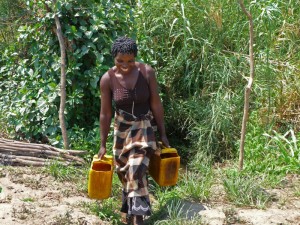 Working on a Market Garden Supporting Income Generating Activities (IGAs) is vital so that families have the opportunity to improve their livelihoods. Through experience, HODI has realised that working with women’s groups tends to be most effective; women usually are in charge of looking after the families’ needs, and so are more focused to earn income and spend it for the benefit of the family as a whole, including educating their children.
Working in a group of women with different skills and abilities raises the confidence of all of the women, and gives them a chance to share knowledge and discuss problems and solutions whilst enhancing their community spirit and bond.
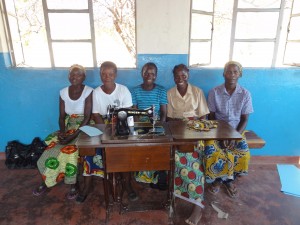 Sewing Group The Trust has provided small business management training to some groups – helping the women to enhance their ability to manage their businesses in a profitable way.
Importantly, many women’s groups need a small amount of capital to get started, so we have also set up a revolving fund which can be distributed as microfinance loans (and once repaid, can be given as new loans to others), in order for them to get their businesses up and running.
|
Update April 2012:
|
Over 50 women have now received microfinance loans from us. On our recent visit, we heard stories from many women telling us how their loans had helped them to increase their income. Here’s an example:
Dailess Mulinganiza, aged 36, is married with 7 children, having her first child at the age of 14 (when in grade 6). Dailess joined the Chiawa Women’s Club in 2009 in order to acquire skills that can help earn an income and uplift her family’s wellbeing. Since she joined the club, Dailess has learnt how to make beaded covers for food, tie-dyed fabrics and designing and tailoring of clothes. The club members share the profits made from sales of food covers and fabrics. 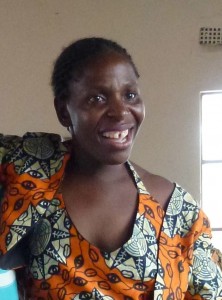 Dailess Furthermore, she has started a trading business with an initial micro credit loan of ZMK 300,000 (£35). She buys fish in Chiawa and sells it in Lusaka. Then she buys products such as bed sheets, beans, cabbage and sweet potatoes which she brings back to sell in Chiawa. The profit is used to buy basic things like mealie-meal, cooking oil, sugar, to buy school books and pens for her kids, and to pay back the loan.
Dailess is grateful to HODI and her fellow women for the skills that she has acquired and for the access to the loan. These go a long way in helping her live a slightly better life.
|
Update Sept 2011
|
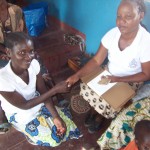 A micro-finance loan is given 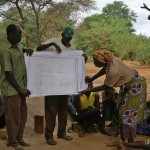 Architect's plans |
Update Feb 2011
|
The women’s groups are continuing with their businesses – one group has made all of the school uniforms for our OVCs and would like more sewing machines; market gardening is popular with the groups nearest the Zambezi, and pumps for irrigation would increase productivity significantly. One group is keen to try pig farming, and another to open a take-away food shop in Chiawa Central. The micro-finance loans are due to be given shortly once all proposals have been received.
|
Update July 2010
|
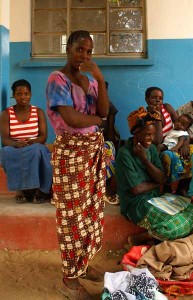 The bank account for the CWAA has now been opened, and the women’s groups are now submitting their proposals for businesses. This involves much discussion within the groups, and it’s interesting to see how the natural leaders have emerged – there are a few really strong women who drive their groups very successfully, whilst other villages seem to muddle along. Hopefully, by setting up the CWAA, ideas and thoughts will be shared between all of the women’s groups, thus helping those who are less successful. The bank account for the CWAA has now been opened, and the women’s groups are now submitting their proposals for businesses. This involves much discussion within the groups, and it’s interesting to see how the natural leaders have emerged – there are a few really strong women who drive their groups very successfully, whilst other villages seem to muddle along. Hopefully, by setting up the CWAA, ideas and thoughts will be shared between all of the women’s groups, thus helping those who are less successful.
|
Update Feb 2010
|
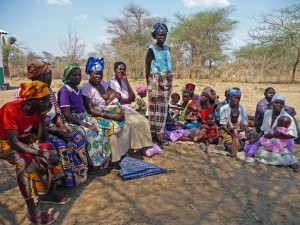 Women's Group It was decided the microfinance scheme will be run by the Chiawa Women Area Association (CWAA – a newly formed group consisting of the leaders from each women’s group). HODI will monitor and provide technical support for the effective and prudent use of the microfinance funds. The CWAA is in the process of registering with Kafue District Council which will enable them to open a bank account, where the repayments of the loans will be deposited.
|
|